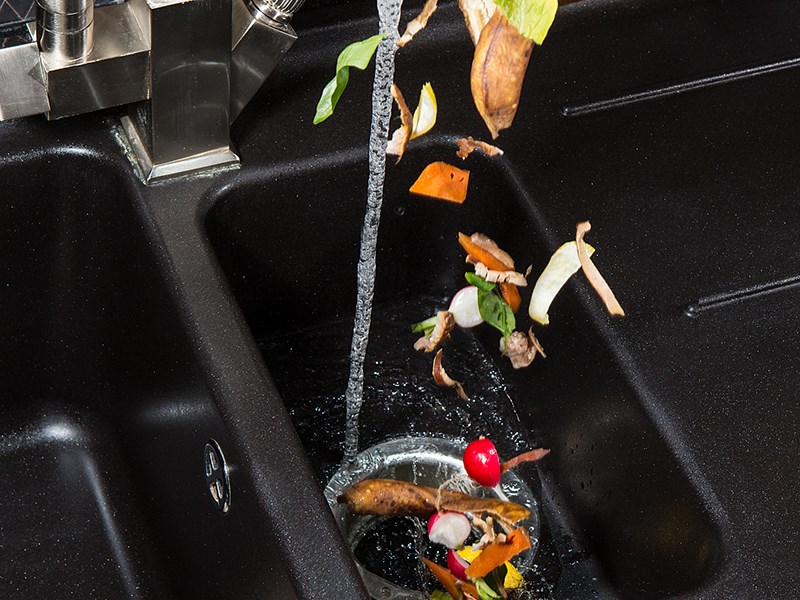At the end of a long day and a homemade meal, it can be tempting to fill the dishwasher and toss food scraps in the trash or down the garburator.
Such conveniences save time and are preferred by some over a backyard composter or the local compost drop-off facility. But what do these conveniences cost the earth? Are garburators being used to rinse our conscience?
Once food is flushed, it does not magically disappear, but instead ends up at the local wastewater treatment facility. These facilities are designed to deal with sewage, but not large amounts of food bits and grease.
Food waste is responsible for clogging city pipes and overwhelming screening technology at treatment facilities. Beyond this, there is the energy usage of each “flush” to consider. Although minimal, electric and water usage adds up over time. But perhaps the most insidious aspect of using a garburator happens at the end of the pipe when it enters the ocean.
Food waste is rich in nitrogen and can lead to a localized nutrient overload in the ocean. Algae blooms can result and shade out sunlight from all life below the surface, essentially creating dead zones.
Composting is a great way to eliminate the need for garburators, and local options are available. Plans for backyard composters can be found online at letstalktrash.ca, and a drop-off program can be accessed at the Town Centre Recycling Depot six days a week.
The greenest option by far is to avoid food waste in the first place. Those science projects at the back of your fridge are fun to joke about, but no joke to clean up. Instead, follow some simple tips to reduce the mould factory in the first place.
-
Grocery shop with a list and plan meals for the week ahead of time.
-
Learn the true meaning of best before dates, which refer to food quality and not safety. The food will be safe to eat after this date but may not be at its best in terms of flavour and texture.
-
Buy items that have been reduced in price because they are nearing best before dates and eat them soon after.
-
Designate a shelf in your household’s fridge as an “eat-me-first” shelf for food about to go off.
By reducing food waste, you can make significant savings over the year while avoiding the unpleasant cleanup jobs resulting from neglected scraps.
Let’s Talk Trash is Powell River Regional District’s waste-management education program.



